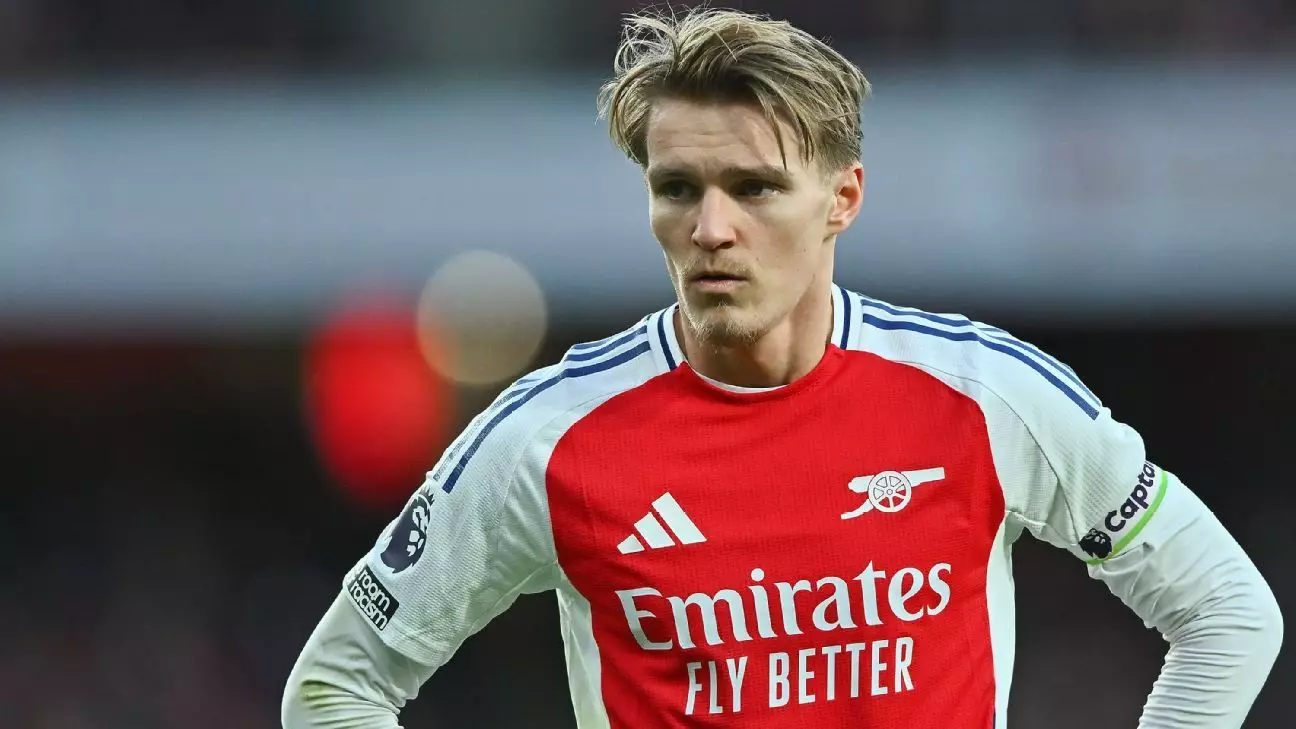In a match that many anticipated would showcase Arsenal’s attacking prowess, the team’s 0-0 draw against Everton at the Emirates Stadium left fans confused and disappointed. The game provided opportunities but ultimately lacked the thrill that comes with a well-executed goal. Mikel Arteta’s choice to substitute captain Martin Ødegaard in the 62nd minute, particularly during a time when the team was desperate for a spark, raises important questions about decision-making and tactical foresight in high-pressure situations.
Arteta defended his controversial choice, labeling it a “tactical decision.” While on the surface, this seems justified—substitutions are often designed to switch tactics or inject fresh energy into the team—removing Ødegaard, an essential playmaker, might have sent a conflicting message. This choice reflects a deeper layer of strategy; however, it also opens a dialogue about the ramifications of such decisions on team morale and individual player confidence. Ødegaard’s leadership on the pitch is invaluable, especially when chasing a result. By choosing to pull him, Arteta risked undermining his captain’s influence at a critical juncture.
Impact of Team Dynamics
The importance of team dynamics cannot be overstated. Arteta’s acknowledgment that intended substitutions might not yield immediate results speaks volumes about the unpredictability of football. While he expressed faith in Ethan Nwaneri’s capabilities, the inherent risk in placing vital match responsibilities on a teenager raises eyebrows. The balance between experience and youth is delicate; in this case, sacrificing a seasoned player for an untested one might have diminished the collective resolve needed late in the match, ultimately contributing to Arsenal’s inability to breach Everton’s rigid defense.
Fitness Issues and Management
Further complicating the situation was the news surrounding Declan Rice, whose substitution was attributed to fitness concerns. Arteta’s revelations underscored the complexities of squad management, particularly in a game where every player’s full capacity is critical. It shines a spotlight on the challenges that managers face in balancing player health with performance outcomes. Rice’s exit, coupled with Ødegaard’s substitution, left a noticeable void that the team struggled to fill, particularly against a well-organized Everton defense, which was adept at neutralizing threats and blocking shots.
Reflecting on this encounter, the lessons are evident. Arteta needs to fine-tune his approach to substitutions, considering both the tactical implications and the psychological effects on players. With Arsenal potentially falling further behind league rivals, strategic execution in tight games will be central to their title aspirations. The resilience and adaptability of a team hinge not just on physical attributes but significantly on the interplay between management decisions and player morale. As the season progresses, finding that balance will be crucial in amplifying Arsenal’s competitiveness on the pitch.

